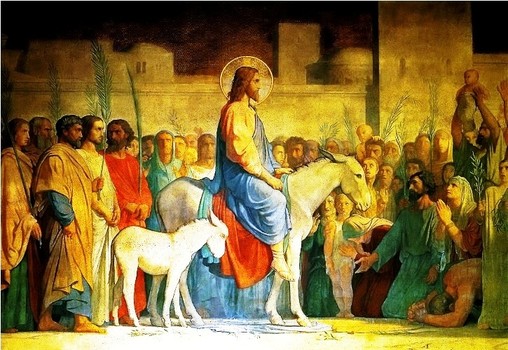Last year as Holy Week approached, I recommended reading all of Mark’s Gospel in one sitting as a one-hour reflection. If you have not had a chance to do so, you may wish to do that this year. Try to forget everything you think you know about Jesus, sit in a quiet place, and listen to him. You will encounter a raw, passionate preacher and miracle-worker, one who has an urgent message for you.
If you have already read Mark, this year I recommend Jesus’ Farewell Discourse in John’s Gospel (Jn. 14-16). In last week’s blog post, we reflected on Jesus washing the feet of his disciples, an event that is only narrated in John’s Gospel. Also exclusive to John is the lengthy discourse that follows. In this farewell address, Jesus speaks his final words of comfort, his final declaration of unity with the Father, and his final commands to his friends before he lays down his life for them.
You have read or heard these words before. They are beautiful, haunting, mystical, profound and personal. Are you a disciple of Jesus? Then he is speaking to you.
Sometime in the coming week, sit down with your Bible in a quiet place, or click here to read the text online. Or click here to print a copy of the text; you can then write your own thoughts and responses to Jesus on the paper.
After class this past week, one of my students commented that John 14-16 should be required reading for every Christian, every few months. Indeed, we need this personal and profound reminder from Jesus, that if we do not love one another as he has loved us, if we do not lay down our lives for one another in small ways and large, then Jesus will not be present in this world. With the privilege of being Jesus’ friend (15:15) comes the joyful and challenging responsibility of sharing that friendship with others (15:13). This is when he truly abides in us, and we in him (15:10).
Reflection questions for John 14-16:
What kinds of things would you say to your loved ones if you knew you were dying?
How do you think the disciples felt when Jesus told them he was leaving, and how does Jesus comfort them?
What is the relationship between Jesus and the Father, and what is their relationship with believers?
How will the Holy Spirit work in our lives in Jesus’ absence?
What is the new commandment of Jesus? How does Jesus love? How must we love?
What does Jesus say that especially strikes you as you prayerfully read this text? What is he speaking to your heart? How do you respond to him?
Christ's Entry into Jerusalem, Hippolyte Flandrin



